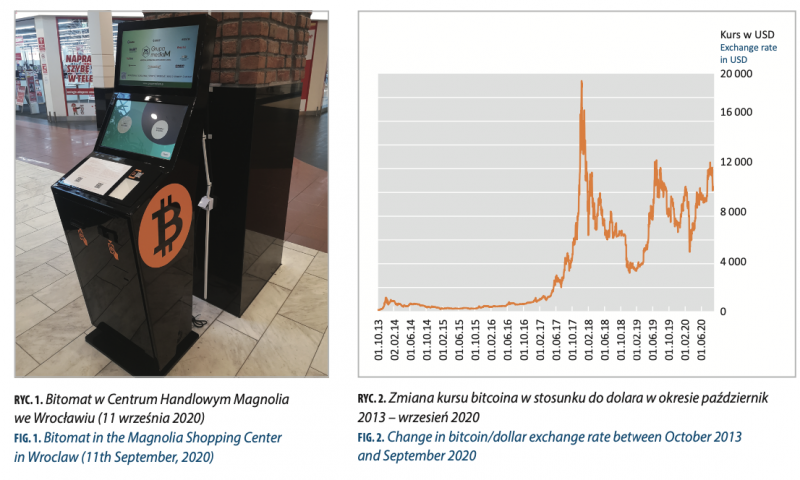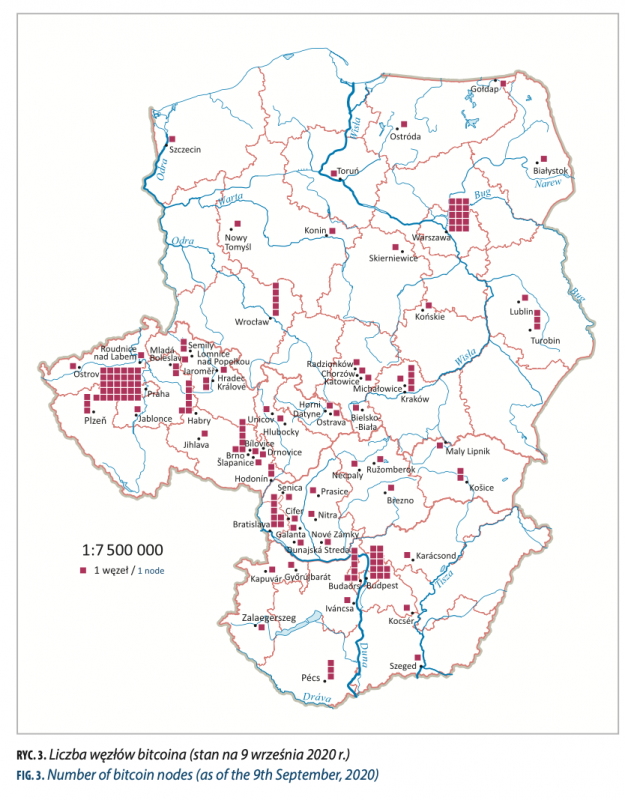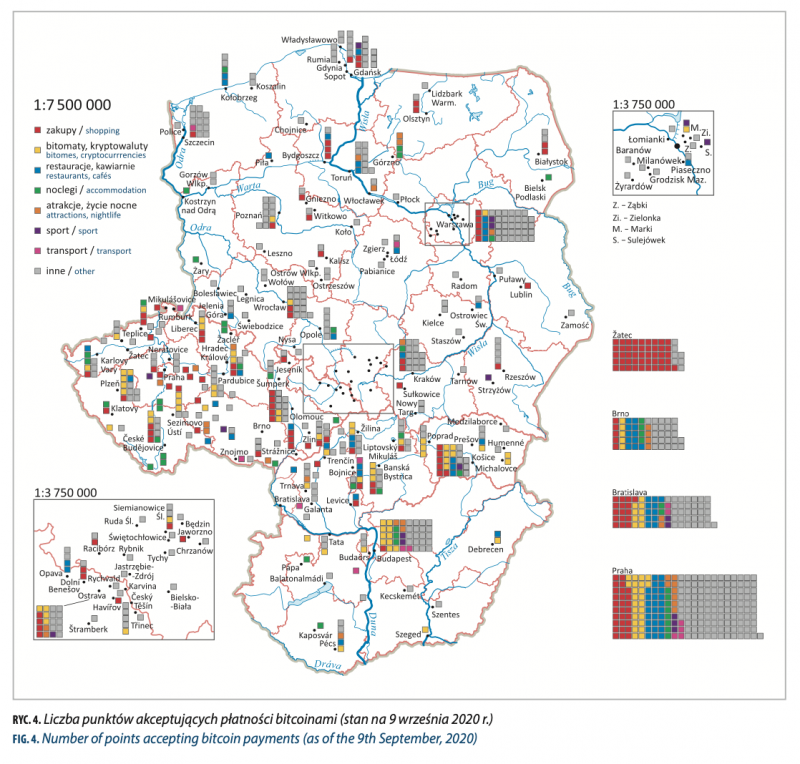The development of the Internet has contributed to changes in society and the economy. New solutions have emerged, replacing or complementing the existing ones. Among them are cryptocurrencies, i.e. digital currencies independent of central institutions.
Krzysztof Janc
They function thanks to the peer-to-peer network (direct exchange network), i.e. their existence depends on cooperation, the involve- ment of the users-volunteers themselves, who make their computers available to be network nodes. Unlike traditional currencies, the supervision (distribution, verification of the validity of transactions) of cryptocurrency operations is not dependent on central institutions, but on the community (people who form the network nodes).
Cryptocurrencies have become an important element of the emerging and evolving digital economy in recent years. At the beginning of September 2020, CoinMarketCap service conducted quotations for nearly 7 thousand cryptocurrencies. The total value in circulation according to the stock market capitalization was USD 322.8 billion. The largest share was held by bitcoin (Ƀ), namely 57.3%. It is currently the most popular cryp- tocurrency in the world. Over the last few years, it has gained significantly in value (Fig. 2).

Bitcoin network nodes are an essential element of a cryptocurrency. The so-called full nodes usually store information about all cryptocurrency operations and are involved in the process of transaction verification. The more such nodes, the more decentralized the network is and its operation can be considered more secure. The number of nodes in a bitcoin network is not constant over time. The available node statistics relate only to their parts, i.e. those that are publicly visible. At the beginning of September 2020, there were over 7.6 thousand operating nodes in the world, of which only 157 in the Visegrad Group countries. Most of them operated in Czechia, followed by Poland, Hungary and Slovakia (Fig. 3). In Czechia, the idea of cryptocurrency was adopted definitely the fastest. This is largely due to the highest innovation among the Visegrad Group countries. The concentration of nodes in the largest cities is clearly noticeable. This is a result of several factors: hierarchical diffusion of innovation, good quality of Internet infrastructure (including speed of connection) in the largest cities, a large share of high-tech activities (especially services), large human capital resources (knowledge and skills).

An important element of the cryptocurrency development is the possibility to use them not only in digital space but also in physical space as a means of payment (e.g. stores, cafés, other services). Spatial accessibility to points of payment acceptance by cryptocurrency is im- portant from the perspective of the digital economy. In the Visegrad Group countries, among the points of sale accepting bitcoins, the largest share is held by stores – 35%, followed by the so-called bit machines – devices operating on the basis of ATMs (allowing the purchase/sale of bitcoins; Fig. 1). The share of about 10% was held by cafes, restaurants and accommodation services (Fig. 4). Like all new solutions (according to the hierar- chical diffusion of innovations), the idea was adopted mainly in the largest urban centres of the Visegrad Group countries. They are the main drivers of change in the economic and social sphere, they are the cen- tres of development of broadly understood innova- tions, including technologies related to the Internet. As with the number of nodes, Czechia is a definite leader with 549 points accepting bitcoins. Prague (214 points accepting cryptocurrency) has for many years been pointed out as one of the most payment-friendly cryptocurrency in the world. It is worth noting that it is in Prague that one of the world’s leading manufacturers of bitcomats is based. Poland has more than two times less points accepting bitcoins (251), even less Slovakia (181), and least Hungary (62).

